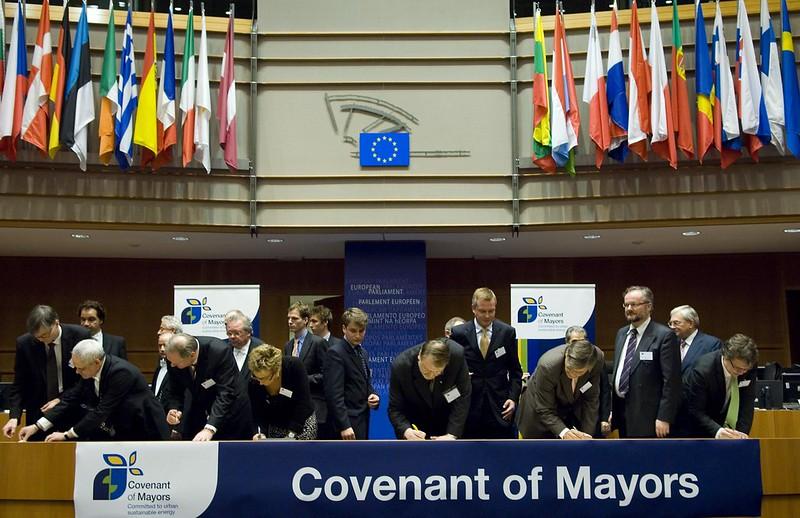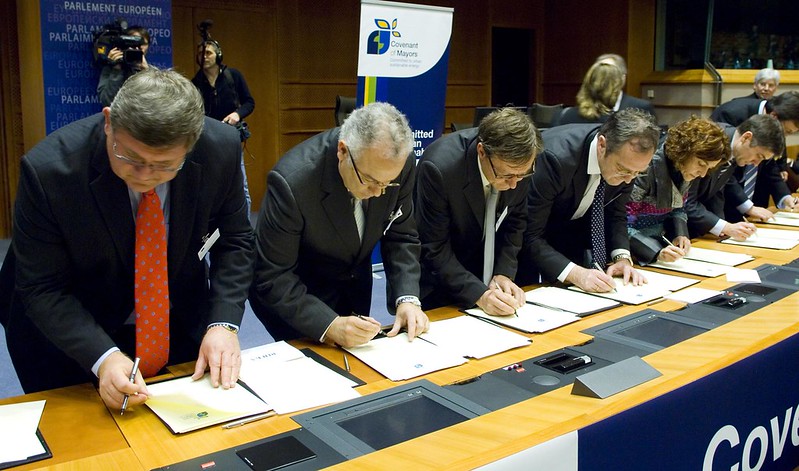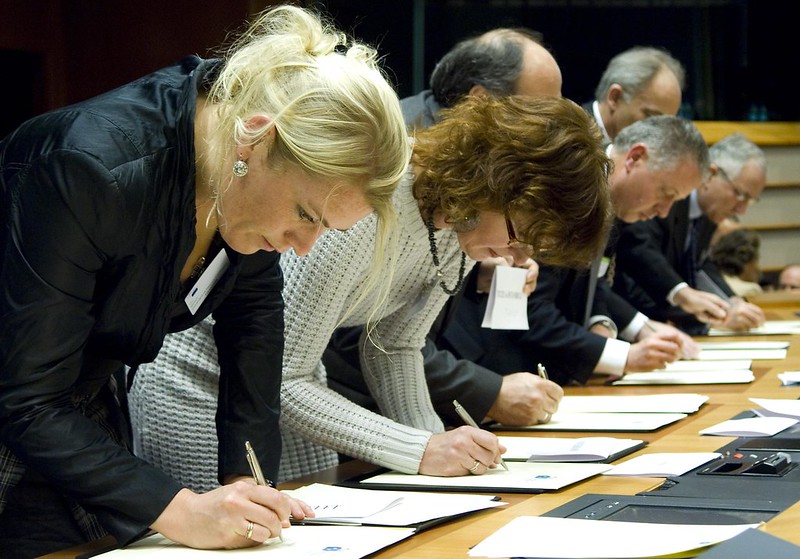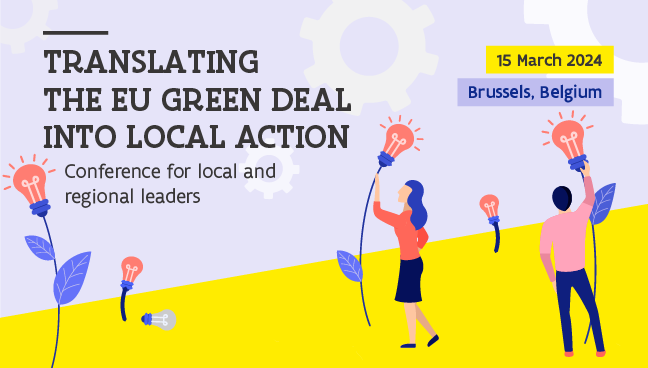
Exactly 15 years ago, 370 mayors gathered at the European Parliament on February 10th, 2009, to officially launch the Covenant of Mayors. They came together to commit to tackling CO2 emissions beyond the EU’s objectives for 2020, reducing them by at least 20% in their respective territories. This first ceremony sent a powerful message, spotlighting the proactive stance of the local leaders towards addressing climate change, while nations worldwide lagged behind in putting it on their agendas.


The Covenant of Mayor’s Evolution
Since then, it’s been clear that local governments have continued to set the pace, leading the way in climate action, side by side with the European Union. The movement grew, and from the 370 original cities, the EU Covenant community now integrates more than 11,000 signatory cities and towns. Territorial coordinators and supporters – mostly regional governments, energy agencies and national associations – also became key actors in the initiative, advancing a multilevel approach to climate action. Due to its success, the initiative went global in 2016, with the Global Covenant of Mayors.
As the global fight against climate change has intensified and become more comprehensive, the initiative also evolved to encompass measures beyond mitigation. Since 2014, cities integrate climate adaptation into their plans to make local territories more resilient to growing climate hazards. At the same time, energy poverty also became a pillar, ensuring local governments are working towards a just and fair transition for all.

The road to 2050
For 15 years, mayors have been tackling the question of climate change and increasing their ambitions in line with the European Union, aligning with the 2030 targets, and eventually the objective of climate neutrality by 2050. As part of the EU Mission of climate-neutral and smart cities, launched in 2022, a handful of the boldest Covenant signatories are even going beyond these targets, aiming for climate neutrality by 2030.
This week, the European Commission communicated their recommendation for a 90% reduction target of emissions by 2040. The Vice-President of the European Commission, Maroš Šefčovič, recognised that the only way to reach targets is by engaging local and regional authorities.
"Without mayors, without local authorities, we cannot build the Green Deal. Involve them as much as possible, they are friends, they are allies and very often they are more ambitious than the national government because they know that if there is a flood, a fire, the citizens knock first on the door of the local mayor before they go to the EU or national government. So we have to work with them and find the best possible modalities how to best synergise and join forces with them." - Maroš Šefčovič, Executive Vice-President of the European Commission in charge of the European Green Deal.
As ambitions grow and efforts accelerate, the panorama of initiatives aligning with the Covenant of Mayors’ endeavours have multiplied. By partnering with many of these key European initiatives (such as the Smart Cities Marketplace, the European City Facility, Energy Poverty Advisory Hub, CINEA LIFE projects, and many more), the Covenant of Mayors has become a crucial entry point for local governments looking to act on climate change.
The road ahead is still difficult. Cities and towns need capacities and funds to develop and implement their action plans. They need to be involved in the decision-making process at the national level, for comprehensive and coordinated climate action across different levels of government.
The Covenant of Mayors is entering a new era, where implementation of the European Green Deal will become a central focus. The EU Covenant will continue to empower cities and towns of all sizes to take action, aligning with the EU’s 2030 and 2040 targets, eventually all reaching climate neutrality by 2050, together.
And we will make sure we do this by always reasserting mayors' critical role, underlining local governments’ potential of mobilising everyone in Europe’s journey towards a just and carbon-free future.
Translating the EU Green Deal into local action
This starts on March 15th, at the high-level Conference “Translating the EU Green Deal into local action”. Organised by the Flemish government under the Belgian Presidency of the European Council, this conference aims to assemble 550 mayors and regional leaders who are ‘fit for 55’ in the European Parliament.
The goal? To unify local and regional voices at the heart of the European Union right before EU elections, and show everyone what they are capable of, when given the means and capacity to implement. The Flemish government is putting forth a declaration to be endorsed by participants, which will pass clear messages and concrete demands to future European policymakers.
Will you be among the 550? Don’t miss this unique opportunity to get together with like-minded leaders for an event organised at a pivotal moment, putting mayors in the spotlight.

Dettalji
- Data tal-pubblikazzjoni
- 9 February 2024
